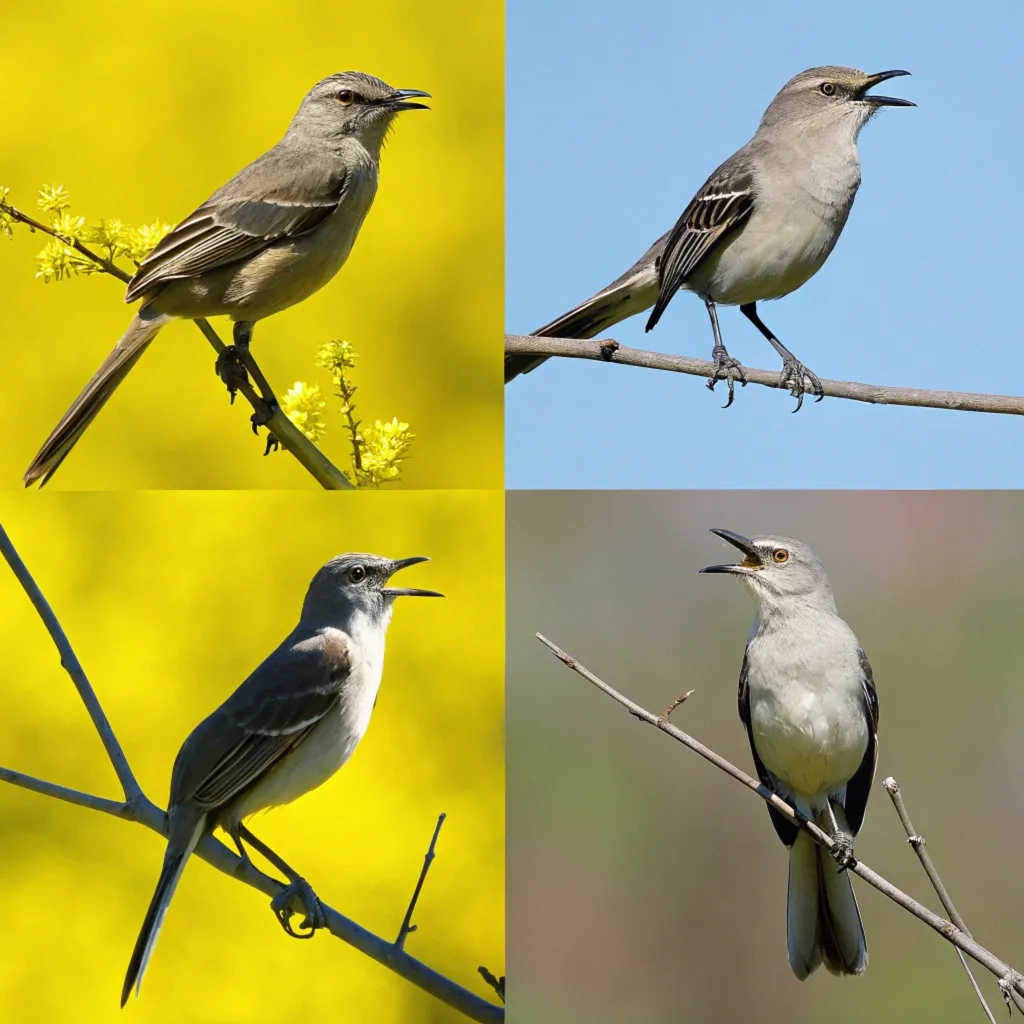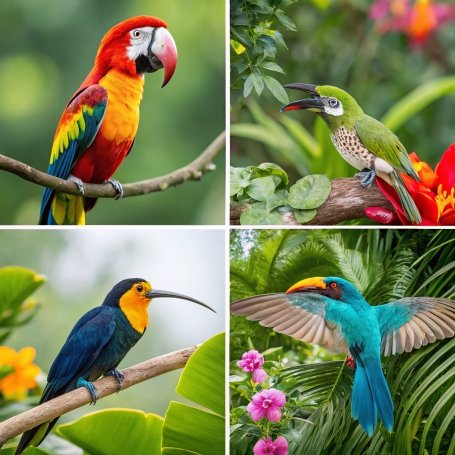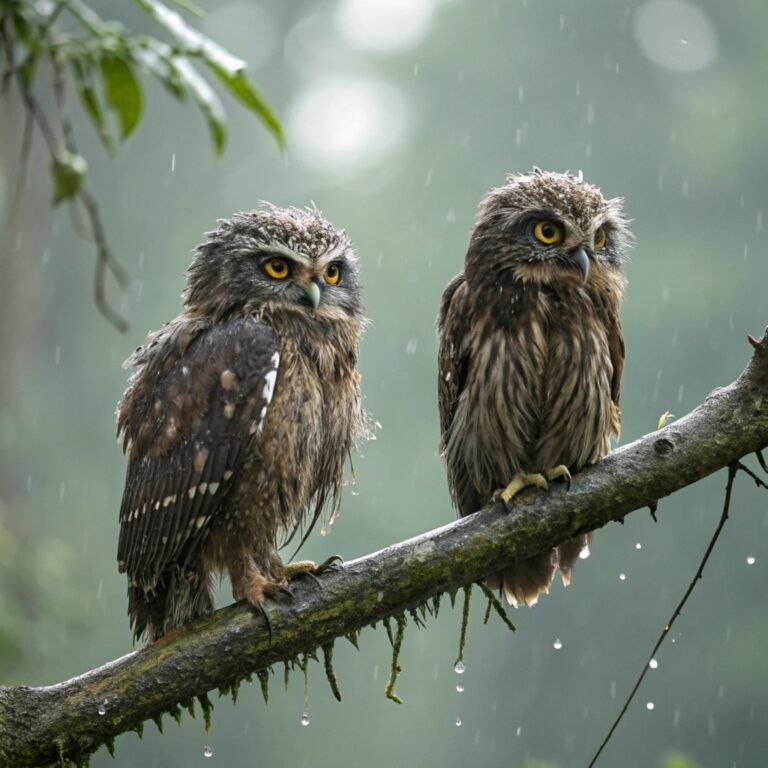11 Mockingbird Symbolism: Hidden Meanings Behind These Birds
Mockingbirds have long captivated our imagination with their melodious songs and remarkable mimicry abilities.
But beyond their beautiful tunes lies a rich tapestry of symbolism and meaning across various cultures and traditions. In this exploration, we’ll uncover the hidden significance of mockingbirds and what they represent in literature, spirituality, and everyday life.
From innocence and protection to creativity and communication, these fascinating birds carry profound symbolic weight that resonates deeply with the human experience.

Key Takeaways:
- Mockingbirds symbolize innocence and purity, often representing vulnerable or misunderstood individuals in society
- These birds embody protection and courage, fiercely defending their nests against much larger predators
- The mockingbird’s diverse song repertoire represents creativity and adaptability, encouraging us to stay open to new experiences
- As master mimics, mockingbirds symbolize both the power of communication and the importance of finding one’s authentic voice
- Mockingbirds are associated with freedom and independence, representing the courage to live life on one’s own terms
- The bird’s mimicry creates a duality in symbolism, representing both adaptability and the search for authenticity
- Mockingbirds are seen as symbols of intelligence and cunning, often appearing as trickster figures or wise advisors in folklore
- Their beautiful songs make mockingbirds powerful symbols of joy and playfulness, reminding us to celebrate life
- The mockingbird’s ability to thrive in various environments symbolizes resilience and adaptability in the face of adversity
- In spiritual traditions, mockingbirds are often viewed as messengers between the physical and spiritual realms
- Mockingbirds have become significant cultural icons, particularly in American literature and popular culture
- The appearance of a mockingbird is often interpreted as a sign to pay attention to communication in one’s life
- In Native American traditions, mockingbirds are seen as teachers and protectors, associated with spiritual wisdom
- Mockingbirds can serve as spirit animals or totems, representing qualities like versatility and self-expression
- The symbolism of mockingbirds reminds us to stay versatile, express ourselves authentically, and remain open to life’s lessons
This expanded key takeaways section provides a comprehensive overview of the mockingbird’s rich symbolism, touching on various aspects explored in the blog post. The use of bold text for key concepts enhances readability and emphasizes important points.
1. Innocence and Purity: The Mockingbird as a Symbol of Virtue
The mockingbird has long been associated with innocence and purity in literature and popular culture. This symbolism stems from the bird’s harmless nature and its tendency to simply sing for the joy of it, without causing any damage or disturbance.
In Harper Lee’s classic novel “To Kill a Mockingbird,” the titular bird becomes a powerful metaphor for innocence destroyed by evil and prejudice. The character Atticus Finch famously tells his children that “it’s a sin to kill a mockingbird” because they “don’t do one thing but make music for us to enjoy.”
This poignant symbolism extends beyond literature, with mockingbirds often representing vulnerable or misunderstood individuals in society who face unjust persecution despite their inherent goodness.
The mockingbird’s innocent nature serves as a reminder to protect and cherish those who bring beauty and harmony to the world without asking for anything in return. In many spiritual traditions, the appearance of a mockingbird is seen as a sign to maintain one’s purity of heart and to approach life with childlike wonder and openness.
2. Protection and Courage: The Mockingbird’s Fierce Defensive Nature
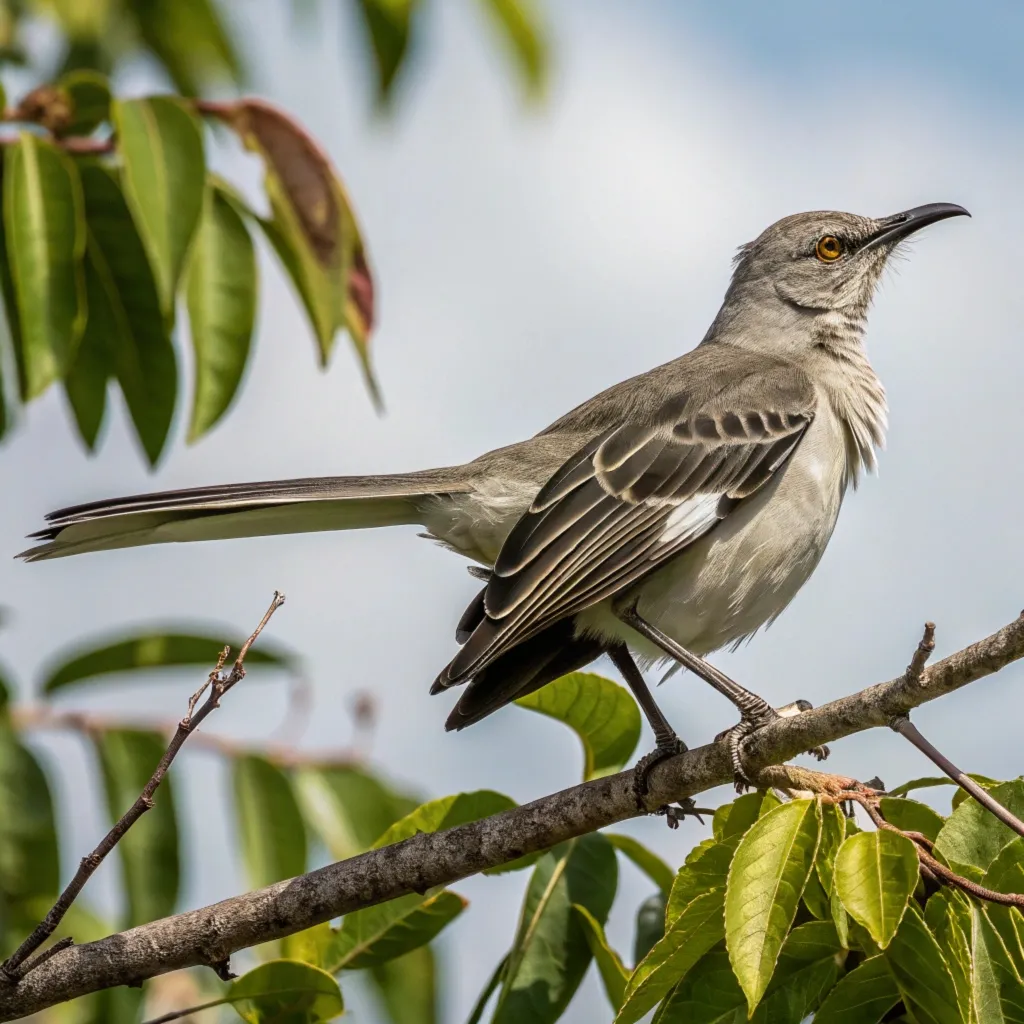
While mockingbirds are known for their sweet songs, they also possess a fierce protective instinct that has earned them symbolic associations with courage and defense of the vulnerable.
These small birds are known to fearlessly dive-bomb much larger predators, including hawks, cats, and even humans, when their nests or young are threatened.
This bold behavior has led to mockingbirds symbolizing the courage to stand up against injustice and protect those who cannot defend themselves. In many cultures, the mockingbird is seen as a spiritual guardian, watching over homes and families.
Native American traditions often view the mockingbird as a protective totem animal, embodying the warrior spirit and the willingness to fight for one’s beliefs and loved ones.
The mockingbird’s protective nature serves as an inspiration to be brave in the face of adversity and to use one’s voice to speak out against wrongdoing. This symbolism reminds us that even the smallest among us can make a powerful impact when defending what is right and just.
3. Creativity and Adaptability: The Mockingbird’s Diverse Repertoire
The mockingbird’s unparalleled ability to mimic a wide variety of sounds has made it a powerful symbol of creativity, adaptability, and versatility. These talented birds can imitate the songs of up to 200 other species, as well as environmental sounds like car alarms and cell phone ringtones.
This remarkable skill has led to mockingbirds symbolizing the importance of flexibility and openness to new experiences in our own lives. In many spiritual traditions, the mockingbird is seen as a teacher of adaptability, encouraging us to embrace change and find creative solutions to life’s challenges.
The bird’s diverse repertoire also represents the power of learning and expanding one’s horizons. Artists and musicians often find inspiration in the mockingbird’s creative spirit, seeing it as a symbol of artistic expression and the ability to synthesize diverse influences into something unique.
The mockingbird reminds us to stay curious, to continually learn and grow, and to approach life with a spirit of playful experimentation and adaptation.
4. Communication and Expression: The Mockingbird’s Powerful Voice
The mockingbird’s impressive vocal abilities have made it a potent symbol of communication and self-expression across many cultures. With its capacity to produce over 200 distinct songs, the mockingbird represents the power of voice and the importance of making oneself heard.
In Native American traditions, the mockingbird is often seen as a messenger between the human and spirit worlds, capable of conveying important information through its songs.
This symbolism extends to the idea of finding one’s authentic voice and speaking one’s truth, even in the face of adversity. The mockingbird’s varied repertoire also represents the importance of listening and understanding different perspectives.
In literature and art, mockingbirds often symbolize characters who use their voices to challenge injustice or bring about positive change. The bird’s association with communication serves as a reminder to express ourselves clearly and authentically, to listen actively to others, and to use our voices as a force for good in the world.
5. Freedom and Independence: The Mockingbird’s Untamed Spirit
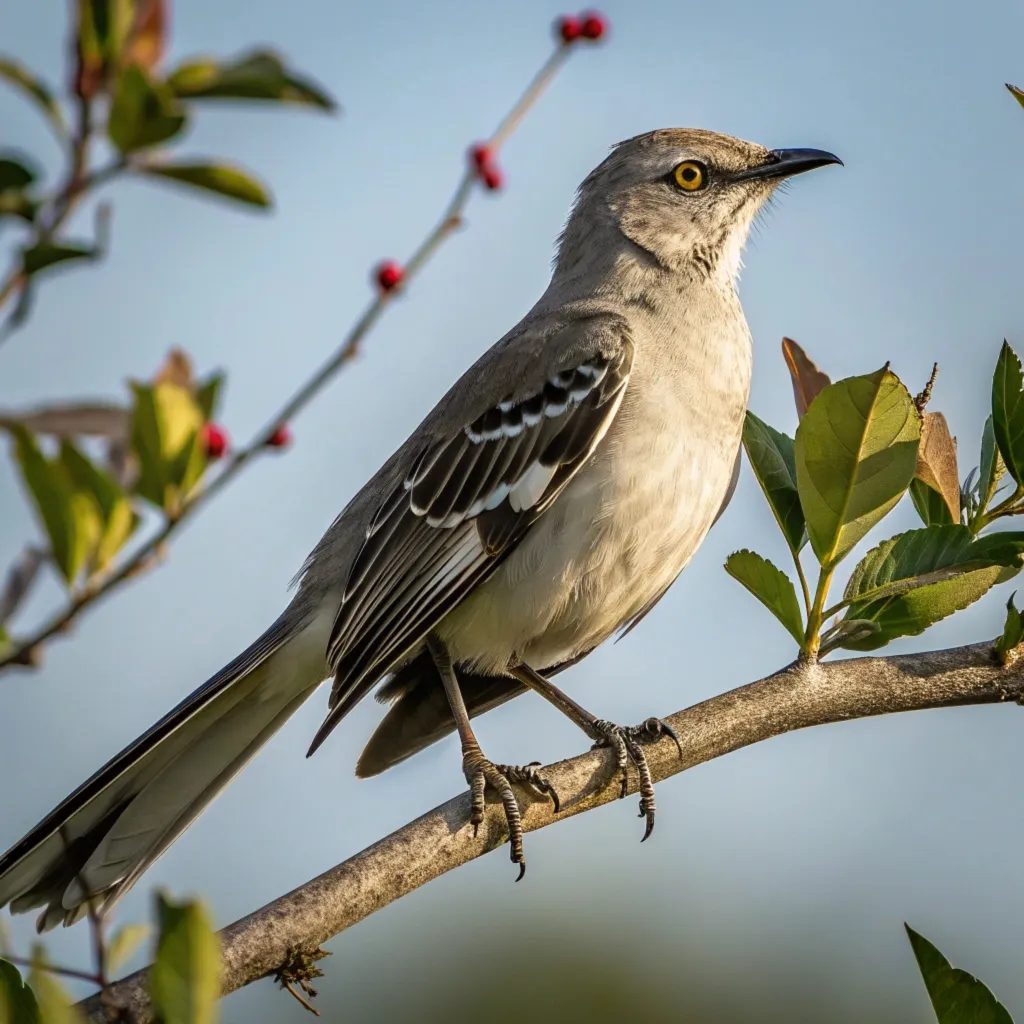
The mockingbird’s free-spirited nature and its ability to thrive in various environments have made it a powerful symbol of freedom and independence. These birds are known for their bold and confident behavior, often singing from prominent perches and defending their territories with fierce determination.
This has led to mockingbirds representing the courage to live life on one’s own terms and to resist conformity or oppression. In many cultures, the mockingbird is seen as a symbol of personal liberation and the breaking free from societal constraints.
The bird’s diverse song repertoire can also represent the freedom to explore different identities and ways of being in the world. In literature and art, mockingbirds often symbolize characters who rebel against unjust systems or fight for their individual rights.
The mockingbird’s association with freedom serves as an inspiration to embrace our authentic selves, to stand up for our beliefs, and to pursue our dreams with unwavering determination.
6. Mimicry and Authenticity: The Mockingbird’s Dual Nature
The mockingbird’s remarkable ability to imitate other birds’ songs creates an interesting duality in its symbolism, representing both mimicry and the search for authenticity.
On one hand, the mockingbird’s skill at reproducing other sounds can symbolize adaptability and the ability to blend into different environments. This can be seen as a positive trait, representing social intelligence and the capacity to learn from others.
However, the mockingbird’s mimicry can also raise questions about authenticity and the importance of finding one’s true voice. In some interpretations, the mockingbird represents the challenge of balancing influences from others with one’s own unique identity.
This symbolism encourages us to reflect on how we incorporate external influences while maintaining our authentic selves. The mockingbird’s dual nature serves as a reminder that true creativity often comes from synthesizing various inspirations into something new and uniquely our own.
It challenges us to find the balance between learning from others and expressing our individual truth.
7. Intelligence and Cunning: The Mockingbird’s Clever Nature

Mockingbirds are renowned for their exceptional intelligence, which has led to their association with cleverness, quick-thinking, and problem-solving in many cultural traditions.
These birds demonstrate remarkable cognitive abilities, including complex song learning, territorial strategies, and even the capacity to recognize individual human faces.
In folklore and mythology, mockingbirds often appear as trickster figures or wise advisors, using their wit to outsmart predators or help heroes on their quests. This symbolism extends to the idea of using one’s intellect to overcome challenges and navigate difficult situations.
The mockingbird’s ability to quickly learn and adapt new songs also represents mental agility and the importance of lifelong learning. In some spiritual traditions, the mockingbird is seen as a teacher of wisdom, encouraging us to approach life’s problems with creativity and resourcefulness.
The bird’s association with intelligence serves as a reminder to cultivate our mental faculties, to think outside the box, and to use our knowledge and skills to make a positive impact on the world.
8. Joy and Playfulness: The Mockingbird’s Uplifting Song
The mockingbird’s beautiful and varied songs have made it a powerful symbol of joy, playfulness, and celebration of life. These birds are known for singing not just during the day, but also at night, filling the air with their melodious tunes.
This has led to mockingbirds representing the importance of finding happiness and expressing oneself freely, even in dark or challenging times.
In many cultures, the mockingbird is seen as a harbinger of good fortune and positive energy, its song believed to bring blessings and lift the spirits of those who hear it. The bird’s playful nature in mimicking various sounds also symbolizes the value of humor and not taking life too seriously.
In literature and art, mockingbirds often represent characters who maintain their optimism and zest for life despite adversity. The mockingbird’s joyful symbolism serves as a reminder to find beauty in the everyday, to express our happiness without restraint, and to approach life with a sense of wonder and delight.
9. Resilience and Adaptability: The Mockingbird’s Survival Skills
Mockingbirds have demonstrated remarkable resilience and adaptability, thriving in a wide range of habitats from urban environments to rural areas. This ability to flourish in diverse conditions has made the mockingbird a powerful symbol of survival and overcoming adversity.
These birds are known for their resourcefulness in finding food and nesting sites, as well as their tenacity in defending their territories. In many cultures, the mockingbird represents the strength to persevere through challenges and to adapt to changing circumstances.
The bird’s diverse song repertoire can also symbolize the importance of having multiple skills or strategies to navigate life’s ups and downs.
In literature and mythology, mockingbirds often appear as symbols of hope and renewal, representing the ability to sing one’s song even in the face of hardship. The mockingbird’s resilient nature serves as an inspiration to cultivate our own adaptability, to find creative solutions to problems, and to maintain our spirit even when faced with difficult situations.
10. Spiritual Messenger: The Mockingbird as a Sign from the Divine
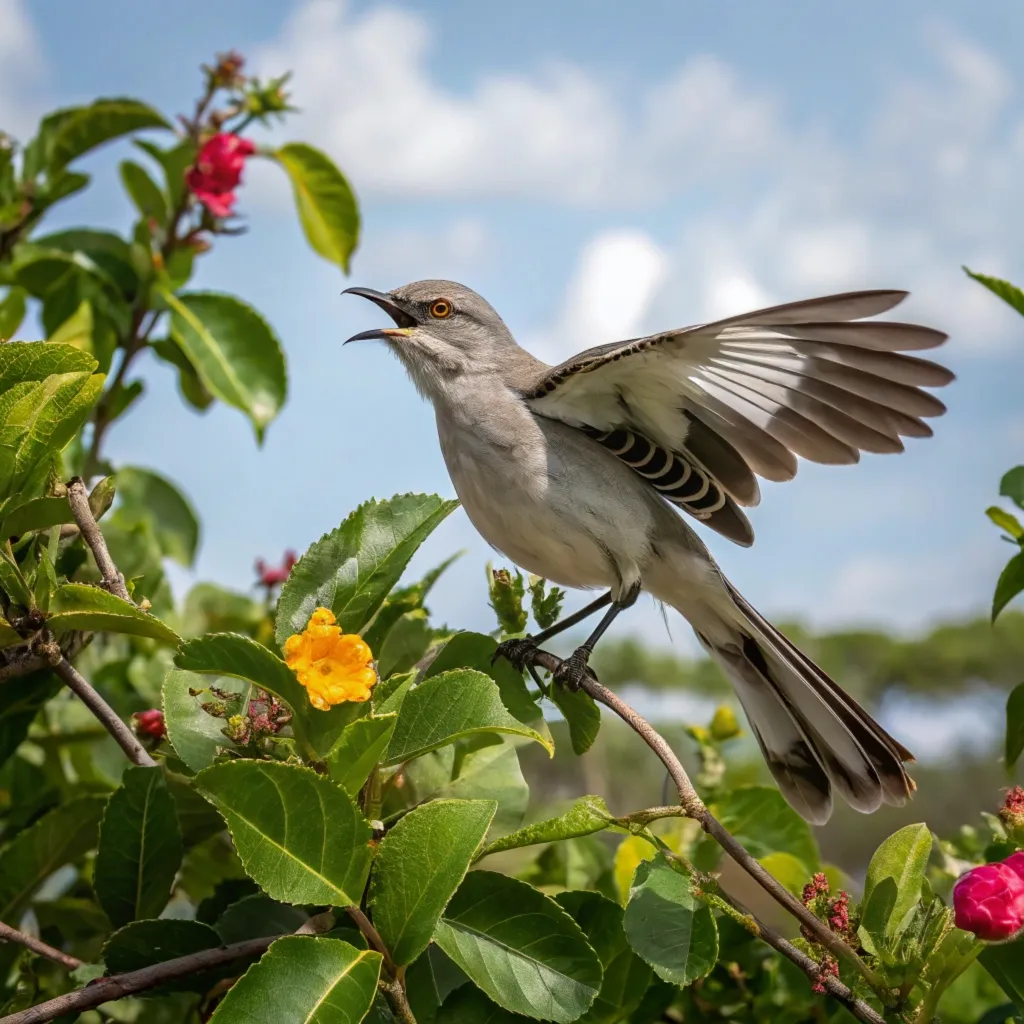
In many spiritual and esoteric traditions, the mockingbird is viewed as a powerful messenger between the physical and spiritual realms.
The bird’s ability to mimic a wide variety of sounds is seen as a metaphor for its capacity to translate divine messages into a language humans can understand.
Encounters with mockingbirds are often interpreted as signs or omens, encouraging the observer to pay attention to their surroundings and listen for important guidance. In some Native American beliefs, the mockingbird is associated with shamanic practices and the ability to travel between worlds.
The bird’s night singing is sometimes seen as a connection to the dream realm or subconscious mind. In other spiritual contexts, the mockingbird may represent the importance of finding one’s true calling or spiritual path.
The appearance of a mockingbird might be interpreted as a reminder to trust one’s intuition and to remain open to messages from the universe. This spiritual symbolism encourages us to stay attuned to the subtle signs and synchronicities in our lives, and to cultivate a deeper connection with the natural world and our own inner wisdom.
11. Cultural Icon: The Mockingbird in Literature and Popular Culture
The mockingbird has secured its place as a significant cultural icon, particularly in American literature and popular culture. Perhaps most famously, Harper Lee’s novel “To Kill a Mockingbird” used the bird as a central metaphor for innocence and the destruction of goodness by evil and prejudice.
This powerful symbolism has resonated with readers for generations, cementing the mockingbird’s place in the collective imagination. Beyond literature, mockingbirds feature prominently in folk songs, poetry, and visual art, often representing themes of freedom, resilience, and the American South.
The bird’s status as the state bird of several southern states has further elevated its cultural significance. In music, the mockingbird has inspired countless songs across genres, from folk ballads to rock anthems.
The bird’s symbolism has also been adopted in political and social movements, representing the fight against injustice and the protection of the vulnerable. This rich cultural history has made the mockingbird a multifaceted symbol, capable of evoking complex emotions and ideas with its mere mention. The mockingbird’s enduring presence in popular culture serves as a testament to its power as a symbol and its ability to capture the human imagination.
FAQs
- What does it mean when you see a mockingbird?
Seeing a mockingbird is often interpreted as a sign to pay attention to communication in your life, to express yourself authentically, or to remain adaptable in the face of change. - Are mockingbirds considered good luck?
In many traditions, mockingbirds are seen as bringers of good fortune and positive energy. Their appearance is often considered a favorable sign. - What does it mean to dream about a mockingbird?
Dreaming of a mockingbird might symbolize the need to find your authentic voice, to be more adaptable, or to pay attention to important messages in your waking life. - Why is killing a mockingbird considered a sin in the novel?
In “To Kill a Mockingbird,” the bird symbolizes innocence and harmlessness. Killing a mockingbird represents the destruction of innocence and goodness for no reason. - How do Native American cultures view mockingbirds?
Many Native American traditions see mockingbirds as teachers, messengers, and protectors, often associating them with communication between the human and spirit worlds. - Can mockingbirds be spirit animals?
Yes, in some spiritual practices, mockingbirds can be considered spirit animals or totem animals, representing qualities like adaptability, creativity, and protection. - What does it mean if a mockingbird visits your yard regularly?
Regular visits from a mockingbird might be interpreted as a reminder to stay flexible, to express yourself freely, or to pay attention to important messages in your environment. - Are there any negative associations with mockingbird symbolism?
While mockingbirds are generally viewed positively, their association with mimicry can sometimes represent inauthenticity or the challenge of finding one’s true voice.

Hello, I’m Emily Price, the founder of Birds Affection. As a passionate bird enthusiast and spiritual seeker, I’ve always been fascinated by the symbolic meanings and mystical connections between birds and our lives. On this website, I share my knowledge and insights on the spiritual significance of various bird species, exploring their roles as messengers, guides, and teachers. Through my writing, I aim to inspire and educate others on the profound wisdom and beauty that birds bring to our world. Join me on this journey as we delve into the enchanting realm of bird symbolism and discover the hidden meanings behind these magnificent creatures.

